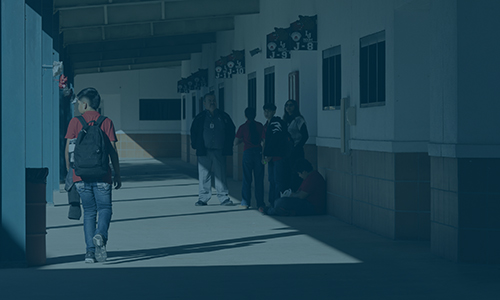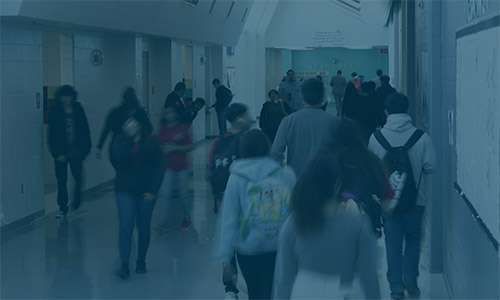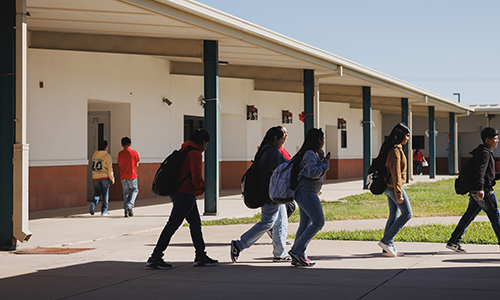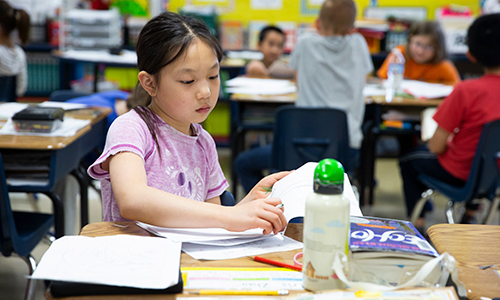Journal article
Rethinking summer slide: The more you gain, the more you lose
2019
By: Megan Kuhfeld

Abstract
It has been common knowledge for decades that poor and working-class students tend to experience “summer learning loss,” a drop in performance between spring and fall that serves to widen the gap between students. However, new research shows that the reality of summer learning loss is more complex. Megan Kuhfeld draws on data from the 3.4 million students who took the NWEA MAP Growth assessments to find that summer slide is common, but not inevitable. According to the data, the students who experienced the greatest loss were those who made the greatest gains during the previous school year. The research also calls into question about the usual explanations for learning loss, such as access to summer programs and length of the school year.
See MoreThis article was published outside of NWEA. The full text can be found at the link above.
Associated Research
Related Topics


Lessons in resilience: A playbook for recovery from natural disasters
This research brief is a follow-up report to NWEA’s brief examining the impact of extreme weather disruptions to teaching and learning. This report offers practical strategies and recommendations to school districts for preparing for extreme weather events to recover faster and lessen the impact on students and teachers.
By: Megan Kuhfeld, James Soland
Topics: COVID-19 & schools, Growth, Seasonal learning patterns & summer loss


School’s in for Summer: A Scalable and Effective Post-Pandemic Academic Intervention
New research report looks at the effects of post-pandemic summer school on student achievement and district recovery, how program design and implementation aligned with recommended best practices, and how the scale and impact of summer school compared to other interventions, like tutoring.
By: Emily Morton, Dan Goldhaber, Andrew McEachin, Thomas J. Kane
Topics: COVID-19 & schools, Growth, Seasonal learning patterns & summer loss


Unequal Access to 8th-Grade Algebra: How School Offerings and Placement Practices Limit Opportunity
This NWEA research brief examines how access to early Algebra – a key gateway to advanced high school math, STEM majors, and higher lifetime earnings – remains highly inequitable across the United States. Using NWEA data from 162,000 eighth-grade students across 22 states, the study looks at both whether schools offer Algebra by 8th grade and how students are placed when it is offered. The findings point to significant gaps tied to school poverty levels, geography, and race/ethnicity.
By: Daniel Long, Megan Kuhfeld, Scott J. Peters
Topics: College & career readiness, Equity, Math & STEM


This is the technical appendix to the “Unequal Access to 8th-Grade Algebra: How School Offerings and Placement Practices Limit Opportunity” research brief, which examines how access to early Algebra remains highly inequitable across the United States.
By: Daniel Long, Megan Kuhfeld, Scott J. Peters
Products: MAP Growth
Topics: College & career readiness, Equity, Math & STEM


Technical appendix for “Hot test days, lower math scores: How heat affects student achievement”
This is the technical appendix to “Hot test days, lower math scores: How heat affects student achievement” research report that examines the impact of environmental temperatures on student performance in math and reading, and whether those effects are more extreme for students in high-poverty schools, where cooling conditions may be less reliable.
By: Sofia Postell, Megan Kuhfeld, Susan Kowalski, Jazmin Isaacs
Products: MAP Growth


Hot test days, lower math scores: How heat affects student achievement
This NWEA research report examines the impact of environmental temperatures on student performance in math and reading, and whether those effects are more extreme for students in high-poverty schools, where cooling conditions may be less reliable.
By: Sofia Postell, Megan Kuhfeld, Susan Kowalski, Jazmin Isaacs
Products: MAP Growth


NWEA’s MAP Growth National Dashboard provides timely trends and data on U.S. student academic achievement and growth for grades K-8. This free public tool supports district leaders, state and federal policymakers, and other education stakeholders in interpreting local data within a broader national and state context. It helps identify areas of strength, shine light on disparities, and ground policy conversations in evidence.
Products: MAP Growth
Topics: COVID-19 & schools, Equity, Growth





